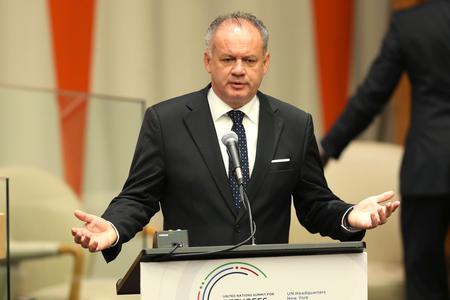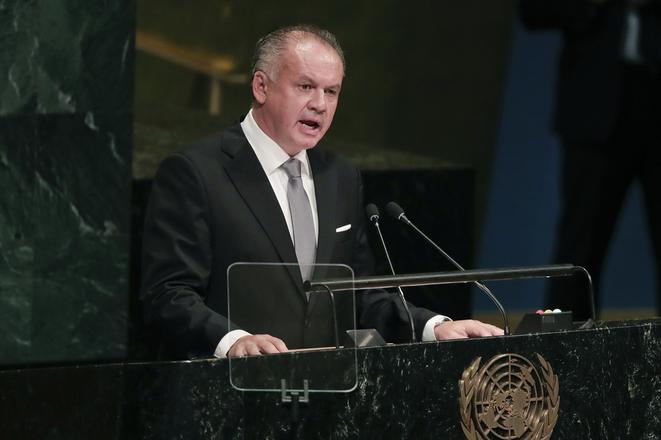Slovakia will offer 550 governmental scholarships to refugees by 2021, Slovakia’s Foreign Affairs Minister Miroslav Lajčák said at the 71st session of the UN General Assembly.
It is an unprecedented number in the country and, in context of the migration crisis, a useful investment as refugees who graduate from schools in Slovakia can return to their homelands and help restore them. This is another specific contribution of Slovakia to solving the migration crisis, he added, as reported by the TASR newswire.
The migration crisis was the main topics of the session which started on September 20 in New York to which 51 countries that contribute to solving the problems were invited. The Slovak delegation is led by President Andrej Kiska, who is accompanied also by Lajčák.
“The participation of Slovakia in this summit confirms that the country is considered part of the international efforts to solve the migration crisis,” Lajčák said, as quoted by TASR.
Slovakia, for example, has been pointing to the need to take the specific possibilities of countries into consideration and allow them to participate in dealing with the migration crisis in a different way than fulfilling mandatory quotas by relocating refugees.
“I perceive the result of the summit, as well as our participation, to be successful,” Lajčák added, as quoted by TASR.

Refugees need help
The main aim of the summit was to generate specific commitments. According to the final statement, supported also by Slovakia, the aim has been fulfilled. The participants have promised to allocate €4.5 billion to solve the current problems. Originally, they expected the aid to total only to €3 billion, TASR wrote.
One of the obvious responsibilities of political leaders is to ensure and preserve peace and development, said Kiska at the summit.
Every political misunderstanding and failure in finding solutions means more people without roofs over their heads, more families separated, more hungry children with desperate parents having to watch them helplessly, the president stressed.
“We may have different starting positions, different experience, even different point of views to the problem, but we all have to understand that refugees need our empathy and our help,” said Kiska, as quoted by TASR.
The world is capable of dealing with the challenges such as poverty, hunger, diseases, injustice and discrimination.
“The success of the new Agenda won’t be possible without efficient international cooperation and coordination backed by the UN institutions,” the president added, referring to the tasks of the 2030 Agenda featuring the above-mentioned challenges. “At the same time we shouldn’t forget about our own homework – to win the hearts, minds and trust of our people. The world has become smaller due to globalisation and modern communication technologies. The problems our world faces have become more global and intertwined. Yet, our social instincts have often remained local, and our sense of responsibility is often limited by our national borders.”
Kiska in his speech also mentioned the crisis in Ukraine that has entered its third year. Slovakia is concerned about the destabilisation of a neighbouring sovereign country and the recurring violence in the region, stated Kiska.
He also commented on the approaching election of the new UN secretary general. He appreciated that this year’s selection process was more transparent and open than ever before. Slovakia also has its candidate this year: Lajčák.



 President Andrej Kiska (source: AP/TASR)
President Andrej Kiska (source: AP/TASR)